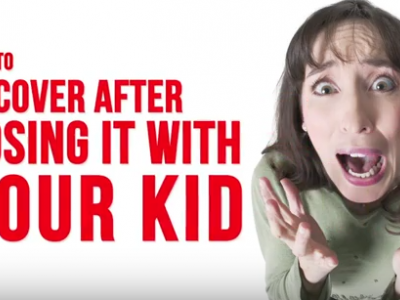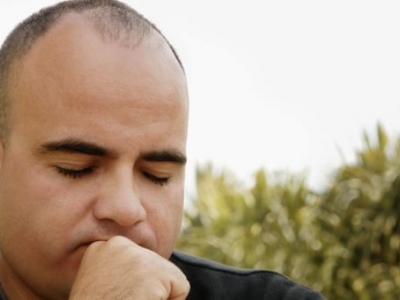
Admitting your sinfulness to your kids
Why it's important to tell your kids you aren't perfect.
It’s just an ordinary day in our house, not even 9am, and already my mum-voice is warmed up and raring. Out of my mouth flows an endless stream of instruction and correction.
Stop whining. Share. You can’t have everything you want instantly. Wait! Stop! And just plain NO!!!
And all the while as my lips speak (bark!) inside my head I’m asking questions. Why? Why must they always disobey? Why do they need so much reminding? I’ve told them no a million times, and yet they still go ahead and do it anyway.
Why???
The answer that comes back to me is not one I necessarily want to hear. It is not so much an answer as more questions, all stemming from an uncomfortable truth: Are you really any better?
Do you never complain, never covet, never want something instantly? On this last point I acknowledge I am particularly weak. And if you have any doubt, just ask my husband. Or, for that matter, my children.
I may have a parent-heart but it’s still a human-heart, which means that it is made of the same fibres as that of my children. The good word tells me so. All are sinful, all have fallen short (Romans 3:23). ALL. No one is perfect on their own, nor can anyone measure up to the mark just by acts of obedience, or by doing better.
That includes us adults.
On the whole adults are better at hiding their sins. But whether shadowy and subtle or spectacularly obvious, we are all sin-carriers, we are all sin-committers. No matter how many rules and corrections are put in place, perfection will always be out of reach. That’s why we need a new law, a writing on and over our hearts. That’s why we need none other than Jesus Christ (Romans 8:3).
I am not saying we shouldn’t discipline our kids, of course we should, but we need to practice our discipline with integrity, which begins with honesy.
Children are very good observers of character. They will see when we fall down. Rather than beating ourselves up for our every mistake, we can use these instances as opportunities to teach our children. Below are two ways admitting our own sinfulness can be used for positive instruction to our children.
Firstly, in admitting our own sinfulness we have an opportunity to model repentence to our children.
Ultimately we don’t discipline our kids to look good in the eyes of the other parents at the school gates or in the playgroup (though the temptation is definitely there). We want changed hearts. Repentent hearts. Kids sniff the phony. Likewise, they absorb the authentic. Let me illustrate with an example from our own house.
My husband and I can at times lose our tempers at one another and fight in front of our kids. Unfortunately this often seems to happen in the car, even… ahem… on our way to church. Suddenly there is nowhere to escape and we have three captive audience members in the back, hanging on our every word as we proceed to hang each other.
We've made it a policy in these situations that if our bad acts are public, our repentence should be too. This means admitting where we went wrong and apologising in front of the kids and to the kids.
In this way we show them that obedience isn’t just about a simple power equation: child to parent, but that it is something that is required of all of us. Repentence is the path to restoration, and we all need to practice it. When we admit our misbehaviour we are given the chance to model love.
Secondly, the ultimate reason we admit our sinfulness to children is that in this way we can point them to grace.
To understand the magnitude of grace, we need first to understand the weight of sin. Obedience isn’t just part of a moral code. It is part of a far greater picture. No matter how hard we try, whether child or adult, we will never be able paint ourselves perfect. There is only one person who can do that.
Jesus.
Ultimately, in anything we teach our kids, big or small, we want to be pointing them to the the truth of the gospel. Repentence is only made possible through the sacrifice of our saviour Jesus at our expense.
Because of the one who came to live and die in our place, in mummy’s place, in daddy’s place, in our friend’s place, and yes, in their place too, our children can become children of God. And from this position of restoration, we can together begin the process of regeneration. But always within the context and loving power of our Father above.
Getting to the heart of our children begins with our own hearts sitting before the heart of the truth. All are sinful. But all are invited to come to the one who can heal us.
We all need it. Amazing Grace.
Nikki Thompson blogs at www.spilledmilkandsunsets.com.
For more articles from Growing Faith, subscribe to our monthly e-newsletter.
To hear about the latest books and resources from Youthworks Media, subscribe here.







